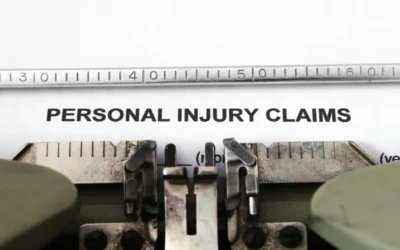After a car accident, it’s common to focus on visible injuries cuts, bruises, and broken bones. But what many people don’t realize is that the emotional impact of a crash can last just as long, if not longer. If you’re feeling anxious, fearful, emotionally numb, or overwhelmed, you’re not alone.
This article explains your rights as a victim of psychological trauma in Florida, what emotional symptoms to look out for, and how to take steps toward both recovery and legal support.
What Is Psychological Trauma After a Crash?
Psychological trauma is your mind’s reaction to a deeply distressing event like a sudden car accident. It can affect anyone, even if the crash seemed “minor” or you walked away without physical injuries.
Common symptoms include:
- Flashbacks or nightmares about the crash
- Panic attacks or fear of driving
- Feeling detached or emotionally numb
- Sleep problems or hypervigilance
- Depression, sadness, or irritability
Trauma can show up days or weeks later, and it can interfere with your work, relationships, or ability to drive again.
Florida Recognizes Emotional Injuries Know Your Rights
Under Florida law, emotional and psychological trauma are considered real injuries and you may be entitled to compensation if another person’s negligence caused your suffering.
Here’s what you need to know:
✅ You Have the Right to Seek Medical Help for Emotional Trauma
Florida law allows you to get treatment not only for physical injuries but also for mental health conditions stemming from a car crash including PTSD, anxiety, or depression.
- Your Personal Injury Protection (PIP) insurance may cover initial mental health care
- If your trauma is serious and long-lasting, you may be able to file a claim against the at-fault driver’s insurance
✅ You May Be Eligible for Damages
Compensation for psychological trauma can include:
- Therapy and counseling costs
- Medication or psychiatric treatment
- Lost wages due to emotional inability to work
- Pain and suffering, including emotional distress
Keep in mind that psychological injuries often require strong medical documentation — a therapist’s diagnosis or a psychiatrist’s report can support your case.
✅ You Have the Right to Legal Representation
Navigating emotional injuries and insurance claims can be confusing, especially when trauma makes everyday tasks feel overwhelming.
A licensed Florida personal injury attorney can:
- Help you gather medical evidence of trauma
- Determine if your emotional injuries meet Florida’s “serious injury” threshold
- File claims and handle insurance companies on your behalf
Hurt Aid can connect you with trusted Florida attorneys who understand the emotional toll of car crashes and will guide you compassionately through your legal options.
Helpful Tips for Protecting Your Rights
- Don’t ignore emotional symptoms. Psychological injuries are just as valid as physical ones.
- See a licensed therapist or mental health professional. A diagnosis helps both with healing and legal documentation.
- Document your symptoms. Keep a daily journal of what you’re experiencing.
- Avoid signing anything from insurance companies until you’ve spoken with an attorney especially if they try to downplay your emotional distress.
You Deserve to Be Heard and Helped
Psychological trauma can feel isolating but you don’t have to suffer in silence. Florida law gives you the right to heal and to hold others accountable for emotional harm. Mental health professionals, medical providers, and attorneys are all available to support your recovery.
Even if it’s “just emotional,” it still matters. You still matter.
Clear Next Steps
- Acknowledge how you feel. Psychological trauma is real and valid.
- Get evaluated by a mental health professional as soon as possible.
- Contact Hurt Aid to be matched with a compassionate Florida attorney who understands trauma cases and can help you explore your rights.
- Keep records of your emotional symptoms, treatments, and how your daily life has changed.





